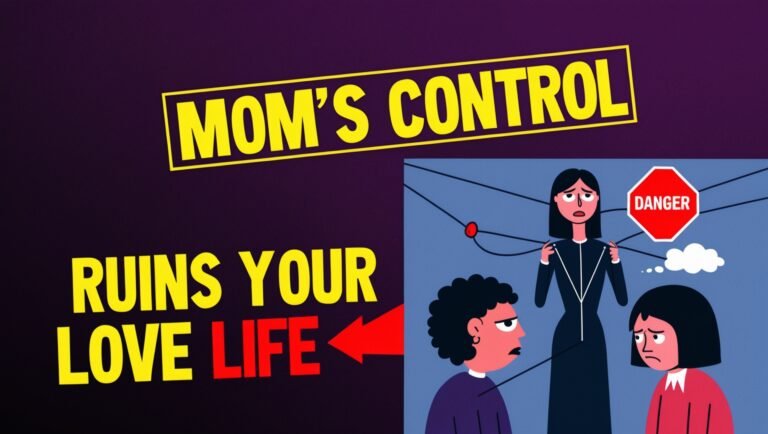How to Stop Being a Narcissist and Live Authentically
Recognizing narcissistic traits in yourself is the first crucial step toward meaningful change. This guide on how to stop being a narcissist offers evidence-based strategies and unconventional approaches to help you overcome narcissistic tendencies and develop healthier relationships.
The Courageous Journey of Self-Transformation
The journey of learning how to stop being a narcissist begins with a powerful act of courage—recognizing patterns within yourself that may be causing harm to both you and those around you. If you’re reading this article on how to stop being a narcissist, you’ve already taken that vital first step. Understanding how to stop being a narcissist requires genuine self-reflection, a willingness to examine uncomfortable truths, and a commitment to long-term personal growth.
Many people mistakenly believe that narcissistic traits are fixed and unchangeable. However, recent psychological research reveals that with dedicated effort and the right support, individuals can significantly reduce narcissistic behaviors and develop healthier ways of relating to themselves and others. The path to overcoming narcissistic tendencies isn’t simple or linear, but transformation is indeed possible with consistent practice and professional guidance.
This comprehensive guide will walk you through evidence-based strategies, therapeutic approaches, and practical daily exercises designed to help you recognize, address, and gradually transform narcissistic patterns.
Whether you’ve been diagnosed with Narcissistic Personality Disorder (NPD) or simply recognize some narcissistic traits in yourself, this article offers a roadmap for meaningful change on how to stop being a narcissist.
Understanding Narcissism: Beyond the Label
Before diving into how to stop being a narcissist, it’s essential to develop a nuanced understanding of narcissism itself. Contrary to popular belief, narcissism exists on a spectrum rather than as a binary condition.
Recognizing the Narcissism Spectrum
Narcissism ranges from healthy self-confidence at one end to pathological narcissism at the other. Most people exhibit some narcissistic traits occasionally—this is normal human behavior. However, when these traits become rigid, pervasive, and cause significant distress or functional impairment, they may constitute Narcissistic Personality Disorder (NPD).
Dr. Craig Malkin, a clinical psychologist and author of “Rethinking Narcissism,” describes narcissism as “the drive to feel special.” This drive becomes problematic when it dominates a person’s personality and relationships. Understanding where you fall on this spectrum is a crucial component of learning how to stop being a narcissist and developing healthier patterns.
Signs You May Have Narcissistic Tendencies

Identifying narcissistic patterns in yourself requires brutal honesty. Some common indicators include:
- A persistent need for admiration and validation
- Difficulty empathizing with others’ feelings and needs
- A sense of entitlement or expectation of special treatment
- Frequently feeling envious of others or believing others envy you
- Tendency to exaggerate achievements and talents
- Preoccupation with fantasies of unlimited success or power
- Exploitative behavior in relationships
- Difficulty handling criticism
- Arrogant or haughty attitudes and behaviors
If several of these patterns feel familiar, you may be exhibiting narcissistic traits that could benefit from the strategies outlined in this guide on how to stop being a narcissist.
The Hidden Vulnerability Behind Narcissism
An unconventional yet critical insight into how to stop being a narcissist comes from understanding the psychological vulnerability that often underlies narcissistic behaviors. Contrary to popular belief, pathological narcissism frequently stems from profound insecurity and shame rather than excessive self-love.
Dr. Joseph Burgo, author of “The Narcissist You Know,” explains that narcissistic defenses often develop as protection against feelings of worthlessness or inadequacy. Understanding this paradox—that narcissistic grandiosity may actually mask deep vulnerability—can be a transformative realization on your journey to change and learn how to stop being a narcissist.
The Foundation: Self-Awareness and Acceptance
The cornerstone of learning how to stop being a narcissist is developing genuine self-awareness—the ability to objectively observe your thoughts, emotions, and behaviors without judgment.
The Mirror Exercise: Facing Your Narcissistic Patterns
An unconventional approach to developing self-awareness involves what therapists call “the mirror exercise.” This isn’t about looking at your physical reflection but rather creating an honest inventory of your narcissistic behaviors and their impact on others.
For one week, maintain a detailed journal documenting:
- Instances when you sought excessive admiration or attention
- Times you dismissed or minimized others’ perspectives
- Situations where you felt entitled to special treatment
- Moments you exploited relationships for personal gain
- Emotional responses to perceived slights or criticism
This exercise isn’t meant to shame you but to establish a baseline understanding of your patterns. Research shows that simply tracking behaviors can increase awareness and begin the process of learning how to stop being a narcissist.
Accepting Responsibility Without Shame
A crucial distinction in how to stop being a narcissist is learning to accept responsibility for your behaviors without drowning in toxic shame. Shame actually reinforces narcissistic defenses rather than dismantling them.
Dr. Kristin Neff, a pioneer in self-compassion research, suggests replacing self-judgment with self-compassion using a three-step approach:
- Acknowledge the suffering your narcissistic patterns cause (both to yourself and others)
- Recognize that imperfection is part of the shared human experience
- Offer yourself kindness and understanding as you work toward change
This compassionate stance creates psychological safety, making it easier to honestly confront narcissistic behaviors without retreating into defensive patterns. If you’re serious about how to stop being a narcissist, cultivating self-compassion will be essential to your progress.
Professional Help: The Cornerstone of Transformation

While self-help strategies can be valuable, professional treatment forms the foundation of effective intervention for significant narcissistic traits. Understanding how to stop being a narcissist almost always requires therapeutic support.
Finding the Right Therapeutic Approach for How to Stop Being a Narcissist
Not all therapeutic modalities are equally effective for addressing narcissistic patterns. Research indicates several approaches show particular promise:
Schema Therapy: This integrative approach helps identify and heal early maladaptive schemas (deeply held emotional and cognitive patterns) that may underlie narcissistic behaviors. Studies show it can be particularly effective for personality disorders.
Mentalization-Based Therapy (MBT): This approach focuses on developing the ability to understand your own and others’ mental states, directly addressing the empathy deficits common in narcissism.
Transference-Focused Psychotherapy (TFP): This psychodynamic approach examines how early relationships influence current patterns and has shown effectiveness for personality disorders, including narcissistic traits.
Finding a therapist experienced in treating narcissistic patterns is crucial when you’re learning how to stop being a narcissist. The therapeutic relationship itself often becomes a powerful vehicle for change, as it provides a mirror for narcissistic behaviors in a supportive context.
Medication Considerations
While no medication specifically treats narcissism, psychiatric support may be helpful if you also experience related conditions like depression, anxiety, or emotional instability. A psychiatrist can determine if medication might be beneficial as part of a comprehensive treatment plan for how to stop being a narcissist.
Developing Empathy: The Antidote to Narcissism
Perhaps the most transformative aspect of learning how to stop being a narcissist is developing genuine empathy—the ability to understand and share the feelings of others.
The Radical Empathy Practice
Dr. Brené Brown, renowned for her research on vulnerability and empathy, suggests that empathy is a skill that can be cultivated through practice. Here’s an unconventional exercise adapted from various therapeutic approaches that can help those learning how to stop being a narcissist:
- Daily perspective-taking: Choose one person each day and deliberately imagine their experience in detail. What might their emotional landscape feel like? What pressures and joys might they experience?
- Active listening transformation: When conversing with someone, make it a rule to ask three questions about their experience before sharing your own perspective. Crucially, ask these questions with genuine curiosity rather than as a performance.
- The empathy immersion: Volunteer in settings where others’ suffering is evident (homeless shelters, crisis hotlines with appropriate training, etc.). Direct exposure to others’ difficulties can bypass intellectual defenses and foster genuine emotional connection.
- Fictional character mapping: Read literary fiction with complex characters and deliberately map their emotional experiences. Research by Dr. Keith Oatley shows that literary fiction can increase empathic accuracy.
These practices may feel uncomfortable initially—even artificial—but with consistency, they can rewire neural pathways related to empathy and significantly support your journey to learn how to stop being a narcissist.
Breaking the Empathy Barriers
For those learning how to stop being a narcissist, specific psychological barriers often block empathic development. Identifying and addressing these barriers is essential:
The zero-sum fallacy: The belief that others’ success diminishes your own. Challenge this by deliberately celebrating others’ achievements and noticing that their success doesn’t actually reduce your worth.
Emotional avoidance: Difficulty connecting with others often stems from disconnection from your own emotions. Daily emotional check-ins can gradually increase your comfort with emotional experiences.
Vulnerability aversion: Fear of appearing weak often prevents authentic connection. Start with “low-risk” vulnerability by sharing minor insecurities or mistakes in safe relationships.
Rebuilding Relationships: Repairing the Damage of Narcissism
Learning how to stop being a narcissist inevitably involves addressing the impact your behaviors have had on relationships. This process requires humility, patience, and a willingness to accept that some relationships may be beyond repair.
The Unconventional Approach to Apologizing
Traditional apologies often fail in the context of narcissistic patterns because they can become performances rather than genuine amends. An alternative approach for those learning how to stop being a narcissist includes:
- Non-defensive listening: Allow the other person to express their hurt completely without interruption, rationalization, or defense. This may require multiple sessions with a therapist’s guidance.
- Specific acknowledgment: Rather than general statements like “I’m sorry for hurting you,” name the exact behaviors and acknowledge their impact: “I consistently dismissed your feelings and centered conversations on myself.”
- Changed behavior as amends: Demonstrate change through consistent behavior over time rather than grand gestures or promises.
- Relationship rebuilding without expectations: Offer to rebuild the relationship without expecting forgiveness or reconciliation. The person may need substantial time to trust again—or may choose not to.
This approach differs radically from how narcissistic patterns typically function, which is precisely why it can be healing for those working on how to stop being a narcissist.
Creating New Relationship Patterns
As you learn how to stop being a narcissist, consciously creating new relationship templates becomes essential. Consider these practices:
- Deliberately ask about others’ experiences and practice active listening without planning your response
- Notice and acknowledge when others contribute to your life or success
- Develop comfort with reciprocity rather than dominating or being dominated
- Practice appropriate self-disclosure that creates mutual vulnerability rather than seeking admiration
- Establish and respect boundaries—both your own and others’
These practices may feel unfamiliar and uncomfortable initially, but they gradually become more natural with practice and are crucial for those learning how to stop being a narcissist.
Daily Practices: Rewiring Narcissistic Patterns

Sustainable change requires daily practices that gradually rewire neural pathways and create new habits. These practical strategies complement therapeutic work in addressing how to stop being a narcissist.
Mindfulness: The Observer Self
Mindfulness practices create space between triggers and narcissistic reactions by developing the “observer self”—the ability to witness your thoughts and emotions without immediately acting on them.
A simple starting practice for those learning how to stop being a narcissist:
- Set aside 10 minutes daily to sit quietly
- Focus on your breath, physical sensations, or sounds around you
- When narcissistic thoughts arise (“I deserve special treatment,” “Others don’t appreciate me enough”), simply notice them without judgment
- Label these thoughts: “There’s the entitlement thought again” or “That’s my sensitivity to criticism”
- Return your focus to your anchor (breath, sensations, or sounds)
With consistent practice, this creates a crucial pause between narcissistic thoughts and reactive behaviors—an essential skill for anyone learning how to stop being a narcissist.
Gratitude Practices with a Twist
While conventional gratitude practices can help counter narcissistic entitlement, they may initially feel artificial. An unconventional approach for those learning how to stop being a narcissist:
- Interdependence inventory: Daily, identify three ways you’ve benefited from others’ efforts (from the barista who made your coffee to the colleague who contributed to a project)
- Growth from criticism journal: Record instances of criticism and identify the grain of truth in each, however small
- Privilege awareness: Regularly reflect on advantages you’ve received through circumstance rather than personal merit
These practices directly counter the entitlement and self-focus central to narcissistic patterns and support your journey to learn how to stop being a narcissist.
Cultivating Authentic Self-Worth
Learning how to stop being a narcissist involves replacing grandiosity with authentic self-worth. Unlike narcissistic inflation, genuine self-worth:
- Is stable rather than requiring constant external validation
- Accommodates both strengths and weaknesses
- Doesn’t depend on superiority or comparison
- Allows for connection rather than competition
Develop authentic self-worth through:
- Setting and achieving meaningful goals aligned with personal values
- Developing mastery in areas of genuine interest
- Contributing to others’ wellbeing
- Practicing self-compassion when facing limitations
These approaches form the foundation for lasting change as you learn how to stop being a narcissist.
Overcoming Narcissistic Defense Mechanisms
Narcissistic defenses often operate unconsciously, making them particularly challenging to address. Understanding and dismantling these mechanisms is crucial to learning how to stop being a narcissist.
Recognizing Your Defensive Patterns
Common narcissistic defenses include:
Denial: Refusing to acknowledge narcissistic behaviors or their impact
Projection: Attributing your negative qualities to others
Rationalization: Creating logical-sounding justifications for problematic behaviors
Gaslighting: Manipulating others to question their perceptions
Rage: Using anger to maintain control when narcissistic supply is threatened
The first step in addressing these defenses is simply recognizing when they’re operating. A therapist can provide crucial feedback in identifying these often-unconscious patterns as you work on how to stop being a narcissist.
The STOP Technique for How to Stop Being a Narcissist
When you notice narcissistic defenses activating, implement the STOP technique:
S – Stop what you’re doing
T – Take a breath
O – Observe your thoughts, emotions, and urges without judgment
P – Proceed mindfully with an alternative response
This pattern interruption creates space to choose non-narcissistic responses—a key skill for those learning how to stop being a narcissist.
Radical Accountability Practice
An unconventional approach to dismantling narcissistic defenses is the “radical accountability practice”:
- Designate a trusted person (often a therapist) as your “accountability partner”
- When interactions become difficult, proactively ask: “How am I showing up right now? Am I being defensive?”
- Listen non-defensively to the feedback
- Acknowledge valid points without excuses or justifications
- Identify one specific behavior to shift in the moment
This practice directly counters the defensiveness central to how narcissistic patterns maintain themselves and is invaluable for those learning how to stop being a narcissist.
Addressing Narcissism in Relationships
Learning how to stop being a narcissist inevitably affects your relationships—both existing ones and those you’ll form in the future.
Communicating Your Change Process
As you work on narcissistic patterns and learn how to stop being a narcissist, consider how to communicate this process to important people in your life. A balanced approach includes:
- Acknowledging past patterns without excessive self-flagellation
- Expressing genuine remorse for specific behaviors
- Sharing your commitment to change without expecting praise
- Requesting specific feedback while recognizing others aren’t responsible for your growth
- Accepting that some may remain skeptical until they see consistent change
This transparent communication creates accountability while respecting others’ boundaries as you work on how to stop being a narcissist.
Navigating Intimate Relationships
Intimate relationships often trigger narcissistic defenses most powerfully. Specific strategies for those learning how to stop being a narcissist include:
- Establishing a “time-out” protocol when narcissistic patterns activate
- Creating shared language to identify problematic dynamics in the moment
- Developing alternatives to defensive responses
- Potentially engaging in couples therapy with a therapist knowledgeable about narcissism
- Practicing gradual escalation of vulnerability and intimacy
These approaches create safer conditions for both you and your partner as you work on how to stop being a narcissist.
Maintaining Progress: The Ongoing Journey
The process of overcoming narcissistic patterns isn’t a destination but an ongoing journey. Understanding how to prevent relapse is as important as initiating change when learning how to stop being a narcissist.
Recognizing Warning Signs
Early warning signs of returning to narcissistic patterns often include:
- Decreased self-reflection and increased certainty about your perspectives
- Diminishing curiosity about others’ experiences
- Increased sensitivity to perceived slights or criticism
- Returning to black-and-white thinking patterns
- Feeling entitled to special treatment or exceptions
- Decreased willingness to receive feedback
Creating a personalized “early warning system” helps identify when you might be slipping into old patterns as you continue working on how to stop being a narcissist.
Sustaining Change Through Community
Narcissistic patterns thrive in isolation. Counterintuitively, one of the most powerful ways to maintain progress in how to stop being a narcissist is through community support. Options include:
- Ongoing therapy, even after significant improvement
- Support groups specifically for narcissistic traits or personality disorders
- Accountability partnerships with others working on similar issues
- Communities centered around values like compassion, service, or authentic connection
These connections provide both support and mirrors that reflect when narcissistic patterns reemerge as you continue learning how to stop being a narcissist.
Self-Compassion as Prevention
Perhaps counterintuitively, self-compassion serves as powerful protection against narcissistic relapse. When you treat yourself with genuine kindness during inevitable setbacks, you’re less likely to resort to narcissistic defenses to protect your self-concept.
Dr. Kristin Neff’s research demonstrates that self-compassion—unlike self-esteem—doesn’t require feeling special or above average. This makes it a sustainable alternative to narcissistic patterns for those learning how to stop being a narcissist.
What You Should Take From This Article
Learning how to stop being a narcissist represents one of the most challenging yet rewarding psychological journeys possible. The path requires courage, persistence, and usually professional support, but meaningful change is genuinely possible. The key insights to remember about how to stop being a narcissist include:
Narcissistic traits exist on a spectrum and often mask deep vulnerability rather than indicating excessive self-love. The foundation of change begins with developing genuine self-awareness and accepting responsibility without toxic shame. Professional help, particularly through modalities like Schema Therapy, MBT, or TFP, provides crucial support for this transformation.
Developing empathy through deliberate practices serves as a powerful antidote to narcissistic patterns, while rebuilding relationships requires patience, humility, and consistent behavioral change. Daily mindfulness practices, authentic self-worth development, and dismantling narcissistic defenses create the infrastructure for lasting transformation as you learn how to stop being a narcissist.
The journey of how to stop being a narcissist isn’t linear, and maintaining progress requires ongoing vigilance, community support, and self-compassion. While challenging, this path offers profound rewards: authentic connection, greater emotional freedom, and the deep satisfaction of living congruently with your values.
If you recognize narcissistic patterns in yourself, take heart in knowing that your awareness itself represents a crucial first step. With commitment and support, you can develop healthier ways of relating to yourself and others that lead to more fulfilling relationships and a more authentic life as you continue learning how to stop being a narcissist.
Need any help from our Qualified Therapists, you can contact us .







